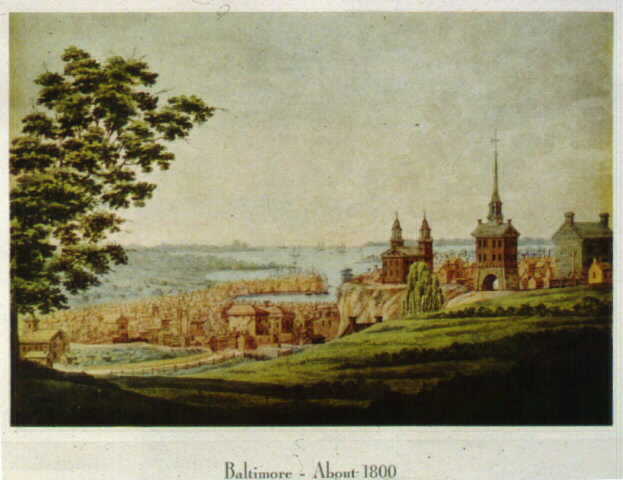

REQUIRED READING
All students are expected to purchase the revised edition of Sherry H. Olson, Baltimore (Baltimore: Johns Hopkins University Press, 1997), if available at a reasonable cost. Web based sources for purchase of these books includes http://bookfinder.com. Because much of the reading material for this course is out of print and/or is protected by copyright, electronic copies of all texts will be supplied on loan for the semester to students for personal use only on media supplied and owned by the Instructor. Some reading and resources may also be supplied on line. In order to access files on line a user name and password may be needed and will be given out in class. Use of the user name and password, and any materials supplied on loan on USB or CD, constitutes acceptance of the personal/educational use guidelines of copyrighted material, exonerating the instructor from any concerns regarding violation of copyright.
This course is intended to be an introduction to the resources
and
tools for reading, writing, and presenting the environmental
history of Baltimore on the
World Wide Web. Students are expected to carefully read all assignments
in advance of class and to present their writing requirements
in
electronic form to the instructor, and as class presentations
scheduled for the last weeks of the semester, the usb flash drive
supplied by the Instructor. Students are advised to regularly
back up their work on their own computers. Discussion of
the assigned reading for each class noted on the syllabus will be led
by
one or more students during the first hour, depending upon class size,
followed by a topical lecture given by the instructor or guest, related
to the period covered in that class. Students will be
assigned
class
leadership roles for class discussion of readings and their written
assignments by lot and may be asked
to lead discussions more than once in a semester. For
example,
the student or students assigned to lead the reading discussion for a
given
class will have been expected to have read the assignments, present a a
summary of what was learned about the history of the city's impact on
the environment, and provide questions about the reading designed
to evoke discussion about what the reading did not
reveal, and/or that should have been
covered in greater depth or with greater clarity. In addition to the
reading discussions early in the semester, students
will present their research to the class at the end of the
semester.
All students are to read, annotate and introduce an assigned packet of original court documents, images of which will be made available on line to be downloaded to the USB flash drive provided. An oral presentation of the project will be given to the class as assigned and shown on the class schedule.
All students are to submit a web ready,
20-25 page
research
paper on an assigned court case at the end of the semester containing a
biography suitable for Wikipedia of an individual associated with the
case that the student believes deserves recognition.. All
papers
should
be properly footnoted and contain a bibliography of sources consulted.
SYLLABUS, RESEARCH DOCUMENTS, AND READING MATERIALS
The syllabus is available on line at mdhistory.net.
Required readings are available on a USB Flash drive loaned
by
the instructor. Web based research materials often will be accessible
by password only and, with any materials loaned on the Flash
drive, are intended
for the personal reference use of registered students. Copying or
further
distribution in any form of this material is at the risk of the student
and constitutes violation of copyright on the part of the user.
MLA program, Krieger School of Arts and Sciences
The edited, annotated, and introduced court documents with biography will constitute up to 60 points of the final grade and will include a class presentation in the final class or classes (depending upon class size).
A=90-100 points; B=80-89 points; C=70-79 points; D=60-69
points; F=
anything less than 60 points.
NOTE: The direct quoting of someone else's work (anything more than a phrase or two) without using quotation marks and citing the specific source of the quote (author, title, edition, and page) will not be tolerated and will result in an automatic 'F' on the assignment. Adopting an author's point of view is not considered plagiarism as long as the source is identified by some form of annotation of your text (i.e. footnotes, Turabian short form; note on sources at the end of your essay or review, or some other format approved in advance by the instructor).
ęDr.
Edward C. Papenfuse (instructor)
State Archivist and Commissioner of Land Patents
Office Hours:
by appointment in person, interactively through email and
Blackboard
Phone: (w) 410-260-6401; (h) 410-467-6137
Internet Address: edpapenfuse@gmail.com
Last update: 2009/09/10